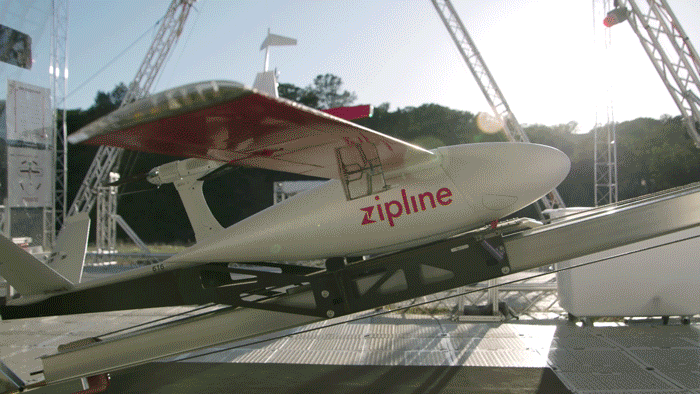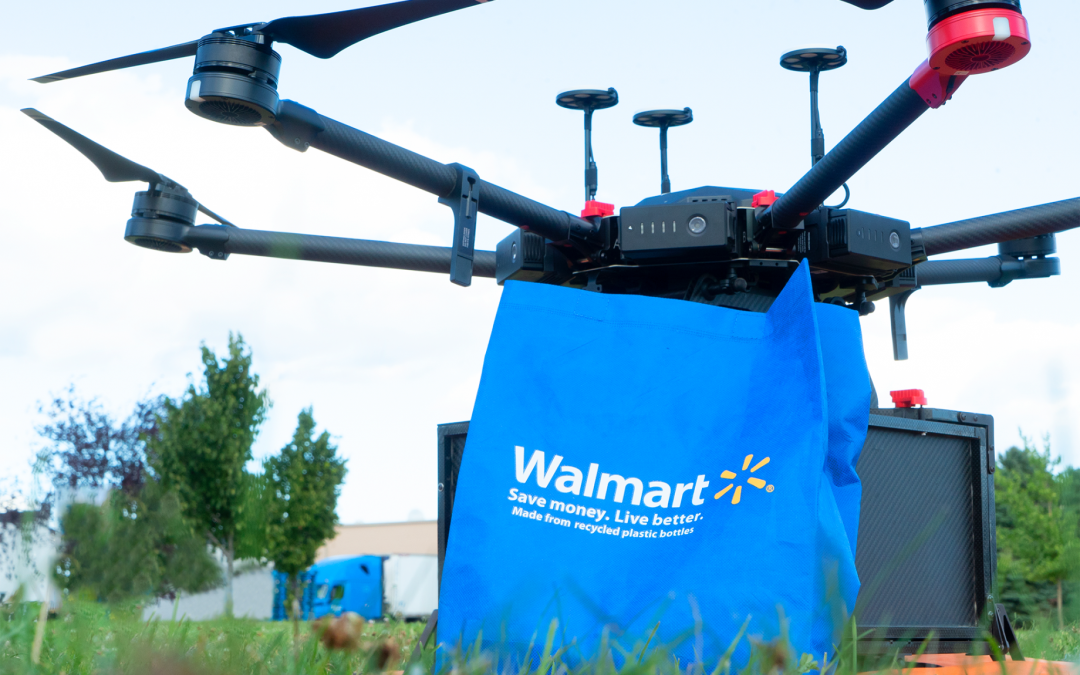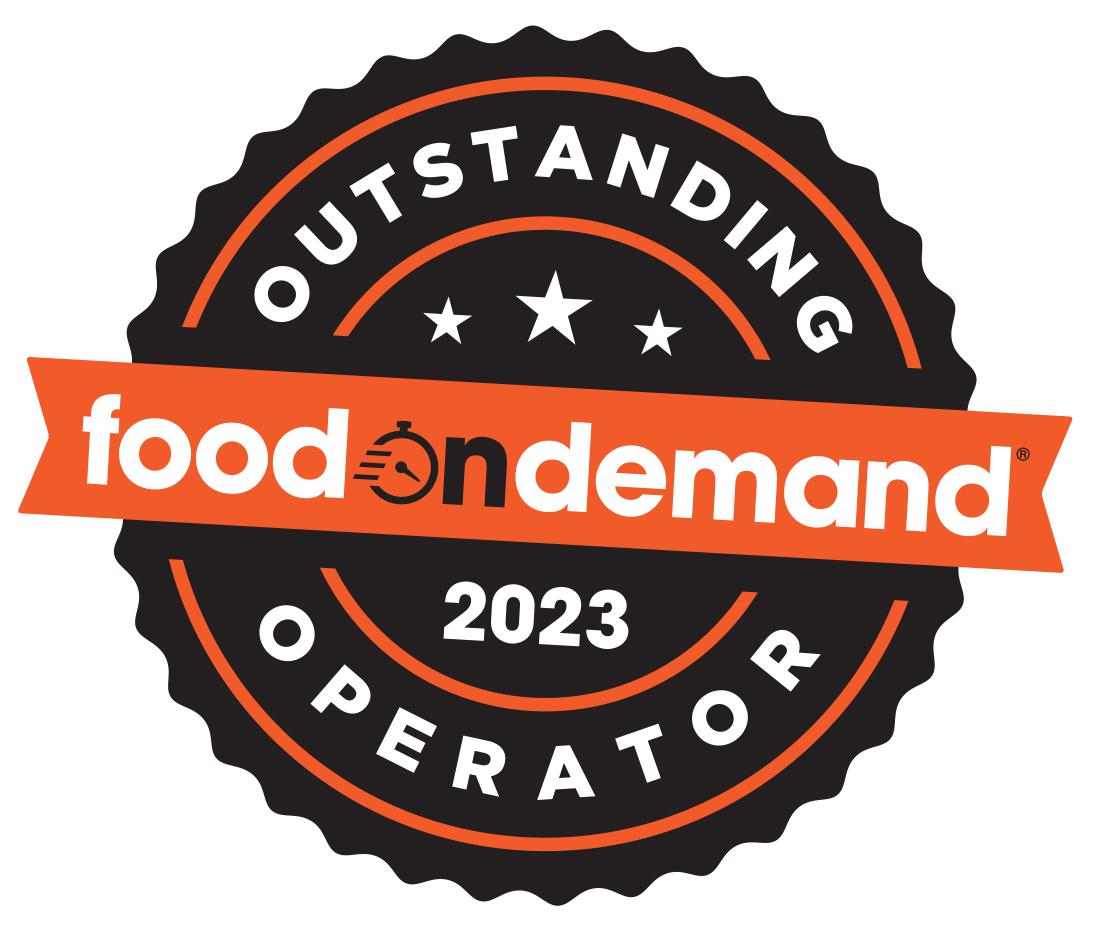Walmart has begun doing real-world drone deliveries in Fayetteville, North Carolina, with partner Flytrex, which got approval in the city last year.
The drones can carry about 6.5 pounds and travel 7 miles per trip, reaching speeds of about 32 miles per hour, according to Flytrex.
Walmart said it was one of many automation tests in process now as the big-box retail giant figures out what’s next.
“We know that it will be some time before we see millions of packages delivered via drone. That still feels like a bit of science fiction, but we’re at a point where we’re learning more and more about the technology that is available and how we can use it to make our customers’ lives easier,” wrote SVP of customer product, Tom Ward, in an announcement. “Take for example our autonomous vehicle work with Gatik, Ford and Nuro—we’ve gained loads of valuable insight into how autonomous vehicles fit within our business.”
Here’s how it works: A Walmart employee loads the bag into a drone, the drone flies to the customer’s home and lowers the goods via tether. See below for some news coverage of the drone in action, but so far nobody has nabbed video of their own delivery. (Come on people, what are you doing all day?)
Where the pilot goes from here is murky given the very limited capacity for tests like these. While Walmart, Amazon, Flytrex and a handful of others have federal certification—Amazon recently secured its own—cities and towns have been slower to open up the skies for drone deliveries. That’s for good reason, nobody wants to be responsible for the first unlucky soul squished by a faulty drone delivery carrying a bag of groceries.
Apart from safety issues, pricing also needs to be figured out. Will consumers be willing to pay the premium for aerial delivery just three miles away from a store? How companies pay for the pilot, the employee’s picking and packing time and the rest of the drone overhead is something few drone testers have discussed yet. And that’s why Drone Delivery Canada made a point to start in remote areas where traditional delivery is just impossible or so prohibitively costly that drone operating fees are relatively miniscule.
Vastly extending the range has been a high-priority for drone makers, and Walmart announced an impending test there just days after turning on drone deliveries. The company said it would partner with drone maker Zipline’s technology, which Ward described in an announcement as “simply put, really cool.”
For that test, which begins early next year, the drones will deliver goods within an incredible 50-mile radius in northwest Arkansas, where the Walmart headquarters is. Zipline is among the handful of drone operators with a serious track record of successful deliveries. The company started in 2016, delivering medical supplies to remote areas of Rwanda and has made more than 200,000 deliveries so far. The company boasts the largest drone delivery network in the world. The technology is really cool: Basically, the company sling-shots an automated airplane into the sky, and drops the goods via parachute.
Check this out in the gif below, which was featured in Walmart’s announcement of the partnership.





